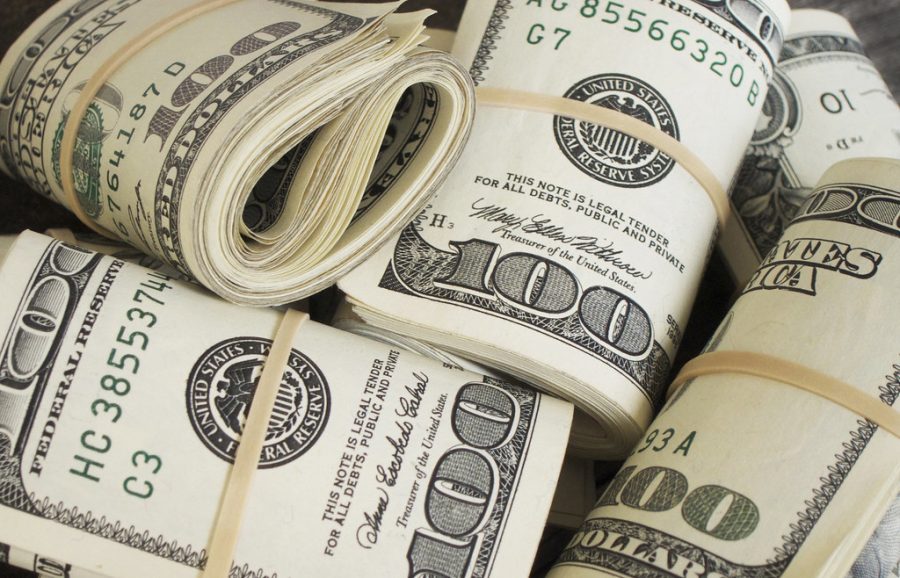Can Money Buy Happiness?
October 18, 2022
We’ve all heard the saying “money can’t buy happiness” and heard about the countless celebrities still dealing with anxiety and depression despite their bank accounts. Although I am quick to agree with the statement as my happiest moments have little to do with money and instead include people and being outside, there is some correlation between money and happiness.
Marc-Andres Leclerc was a famous climber who lived on very little money, meaning he had to sleep in a friend’s 3ft by 8ft stairwell. Despite having to sleep, store climbing equipment and all other possessions in such a small place, he was still content and described his living situation as “pretty rad.” What may seem like a man who lived off of no money, he humorously clarified in his first blog post in 2012 that he still possessed money for things like “beer, ice cream, cookies, and sometimes rock climbing,” which allowed him to relieve many happiness hindering stresses such as a lack of food. It’s very clear that Marc-Andres’ happiness had little to do with money and material objects. According to The Climbing House, “Marc-André was happy climbing in relative obscurity at an extraordinarily high leve. … He wasn’t motivated by wealth, fame, or climbing magazine coverage despite his prodigious talent.” It seems that any amount of money could not compare to the happiness the mountains brought him, but it’s also important to remember that he had enough to relieve stress.
Leclerc is not the only man that draws happiness from the simple things in life; the happiest man in the world does too. A Tibetan monk, Matthieu Ricard has been named the happiest man in the world. According to the Smithsonian Magazine, the University of Wisconsin found that Ricard’s brain produced large amounts of gamma waves and abnormal left prefrontal cortex activity linked with happiness. Although Tibetan monks are not allowed to possess money, people spend money on them giving things like clothes. Even though they aren’t directly spending the money, locals spend it for them on things like food. Without this money being spent, they would not be able to achieve the pure happiness they are known for.
Is poverty really so stressful that it can get in the way of achieving happiness? Carol Graham says yes in her article “The High Costs of Being poor in America: Stress, Pain, and Worry“. According to Graham, research has shown that “Pain, worry, sadness, and anger … are also all significantly higher among low-income cohorts than among wealthy ones.” All this is a part of what she calls “bad stress.” She further explains that it is not only associated with “ lower life satisfaction levels” but also “ worse health outcomes.” When you are unable to be healthy, which seems to be extremely hard to achieve with no money, it is also incredibly hard to achieve happiness.
So what does this all mean? It means you truly can not buy happiness but also may be unable to achieve it without enough money to relieve basic needs and stress. The next time you are making a life-altering decision like a new job, make sure money is not only the reason you are choosing to do so.

